Tag: study

Anti-malaria funding cuts could lead to ‘deadliest resurgence ever’, study warns
Expected reduction in contributions by wealthy countries likely to cost millions of lives and billions in lost growth Slashed contributions from wealthy countries to an anti-malaria fund could allow a resurgence of the disease, costing millions of lives and billions of pounds by the end of the decade, according to a new analysis. Gareth Jenkins,…

New Study Finds Annual COVID Vaccines Protect People against Severe Disease, Even with Prior Immunity
Annual COVID Vaccines Protect People against Severe Disease, Even with Prior Immunity A new study shows that receiving an updated COVID vaccine reduced people’s risk of severe disease and death in all age groups, regardless of immunity from prior infection or vaccination By Sara Novak edited by Lauren J. Young Join Our Community of Science…

Saturn’s Moon Enceladus May Harbor Life. Study Finds Complex Organic Molecules
Enceladus’s Alien Ocean, Ancient Fungi and the Flavor of Influenza Saturn’s moon Enceladus shows signs of life-supporting chemistry, fungi may have shaped Earth before plants, and repeat COVID infections raise long-term health risks for kids. By Rachel Feltman, Fonda Mwangi, Jeffery DelViscio & Alex Sugiura An artist’s impression of surface of Enceladus. Rachel Feltman: Happy…

Taylor Swift’s Speech Pattern Changed over Time, Linguistics Study Shows
Scientists Take on Taylor Swift’s Linguistic Eras An analysis of Taylor Swift’s interviews suggests her speech pattern has changed over her career By Mohana Basu & Nature magazine Taylor Swift delivered a commencement address to New York University graduates in May 2022. Join Our Community of Science Lovers! Researchers have confirmed what Taylor Swift fans…

Kenya’s Turkana people genetically adapted to live in harsh environment, study suggests
Research which began with conversations round a campfire and went on to examine 7m gene variants shows how people survive with little water and a meat-rich diet A collaboration between African and American researchers and a community living in one of the most hostile landscapes of northern Kenya has uncovered key genetic adaptations that explain…

NASA’s InSight Lander Reveals Mars’s Lumpy Mantle in New Seismic Study
Marsquakes, Vaccine Politics and Mammoth Microbiomes A common nasal spray shows promise in reducing COVID risk, but vaccine access remains tangled in policy in the U.S. By Rachel Feltman, Fonda Mwangi & Alex Sugiura Rachel Feltman: Happy Monday, listeners! For Scientific American’s Science Quickly, I’m Rachel Feltman. Let’s kick off the week with a quick…

Spouses Tend to Share Psychiatric Disorders, Massive Study Finds
Spouses Tend to Share Psychiatric Disorders, Massive Study Finds Spouses often share psychiatric diagnoses, according to an analysis of almost 15 million people in three countries By Mohana Basu & Nature magazine Join Our Community of Science Lovers! People with a psychiatric disorder are more likely to marry someone who has the same condition than…

RFK, Jr., Demanded Study on Vaccines and Aluminum Be Retracted—The Journal Said No
RFK, Jr., Demanded a Vaccine Study Be Retracted—The Journal Said No In a rare move for a U.S. public official, Secretary of Health and Human Services Robert F. Kennedy, Jr., called for a paper that found no link between aluminum in vaccines and disease to be retracted. The journal rejected the request By Rachel Fieldhouse…
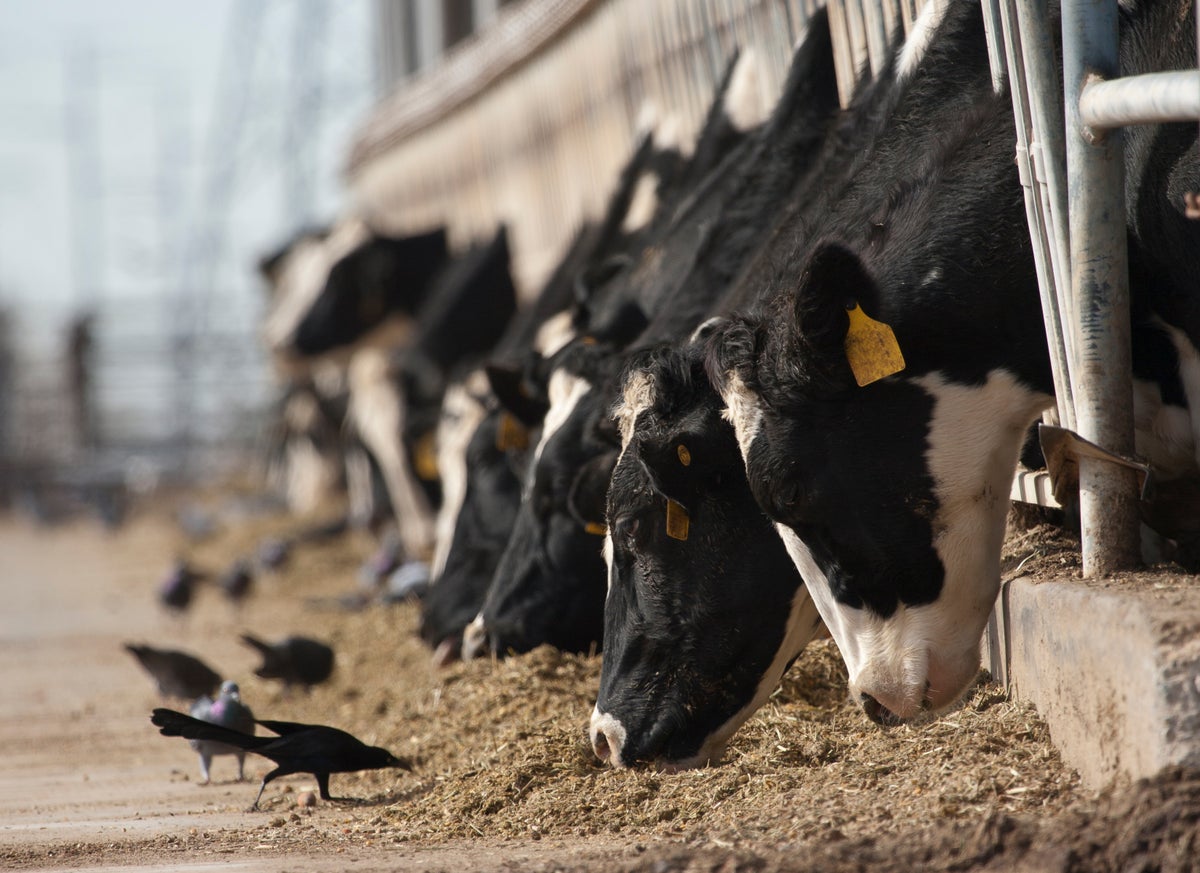
Bird Flu Could Be Spreading through the Air on Dairy Farms, Preliminary Study Shows
Bird Flu on Dairy Farms May Be Airborne After All Infectious bird flu virus was found in milk, on equipment, within wastewater and aerosolized in the air on California dairy farms By Stephanie Pappas edited by Jeanna Bryner H5N1 bird flu is spreading across dairy farms in the U.S. The H5N1 avian influenza virus can…

U.S. Ends Support for CMB-S4 Project to Study Cosmic Inflation
By Nadia Drake edited by Lee Billings An aerial view of the U.S. Amundsen-Scott South Pole Station in Antarctica. Budgetary challenges and crumbling infrastructure at the station helped scuttle the U.S.-led Cosmic Microwave Background Stage 4 (CMB-S4) project. Amid simmering anxiety about the future of federally funded science, the U.S. government has quietly withdrawn support…
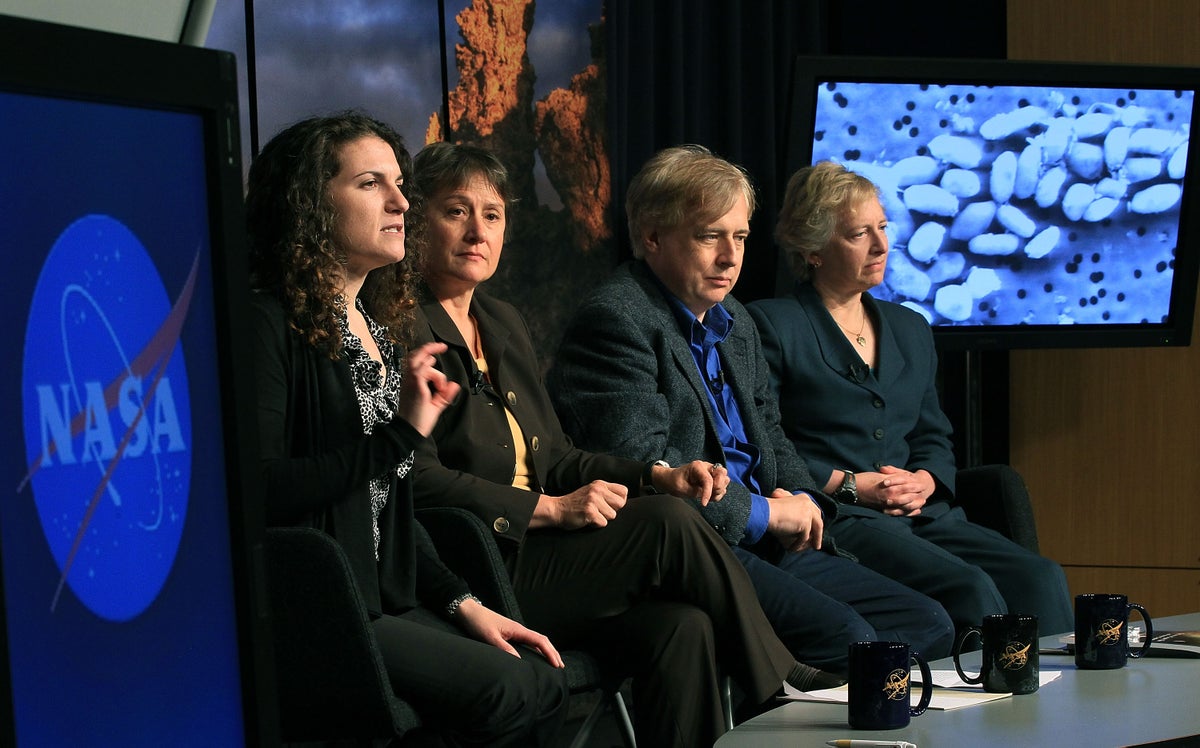
‘Arsenic Life’ Microbe Study Retracted after 15 Years of Controversy
‘Arsenic Life’ Microbe Study Retracted after 15 Years of Controversy A controversial arsenic microbe study unveiled 15 years ago has been retracted. The study’s authors are crying foul By Dan Vergano edited by Lee Billings Felisa Wolfe-Simon speaks during a news conference at NASA Headquarters on December 2, 2010 in Washington, DC. “Can you imagine…

Study Finds COVID Pandemic Accelerated Brain Aging in Everyone
The Pandemic Aged Everyone’s Brain—Even in Healthy People A study of nearly 1,000 people showed that brain aging was not linked to infection status By Gemma Conroy & Nature magazine The brains of healthy people aged faster during the COVID-19 pandemic than did the brains of people analysed before the pandemic began, a study of…

Have all girls or all boys? Study suggests the odds aren’t 50/50
By Scott Neuman Couples who’ve been surprised by a string of baby boys or baby girls could be forgiven for wondering whether the odds in the offspring lottery are more than just pure chance. A new study by Harvard University researchers that examines the birthing records of 58,007 women suggests their hunch might be correct.…

RFK Jr. singled out one study to cut funds for global vaccines. Is that study valid?
By Gabrielle Emanuel Last week, Health and Human Services Secretary Robert F. Kennedy Jr. made a pronouncement that stunned the global health world. Gavi, the Vaccine Alliance — which has vaccinated more than half the world’s children in many of the world’s lowest-income countries — was hosting a major event to solicit donations for its…

Screen addiction and suicidal behaviors are linked for teens, a study shows
By Rhitu Chatterjee If you or someone you know is in crisis, contact the 988 Suicide & Crisis Lifeline via call, text or chat. A new study finds that addiction to social media, mobile phones and video games is linked to a higher risk of suicidal thoughts and behaviors. The study, published in JAMA on…

Frequent TikTok users in Taiwan more likely to agree with pro-China narratives, study finds
Survey shows correlation between use of Chinese-owned platform and approval of unification with China Taiwanese people who spend large amounts of time on TikTok are more likely to agree with some pro-China narratives, a survey has suggested. The study, conducted by the Taiwan-based DoubleThink Lab, surveyed people across Taiwan in March, asking a series of…
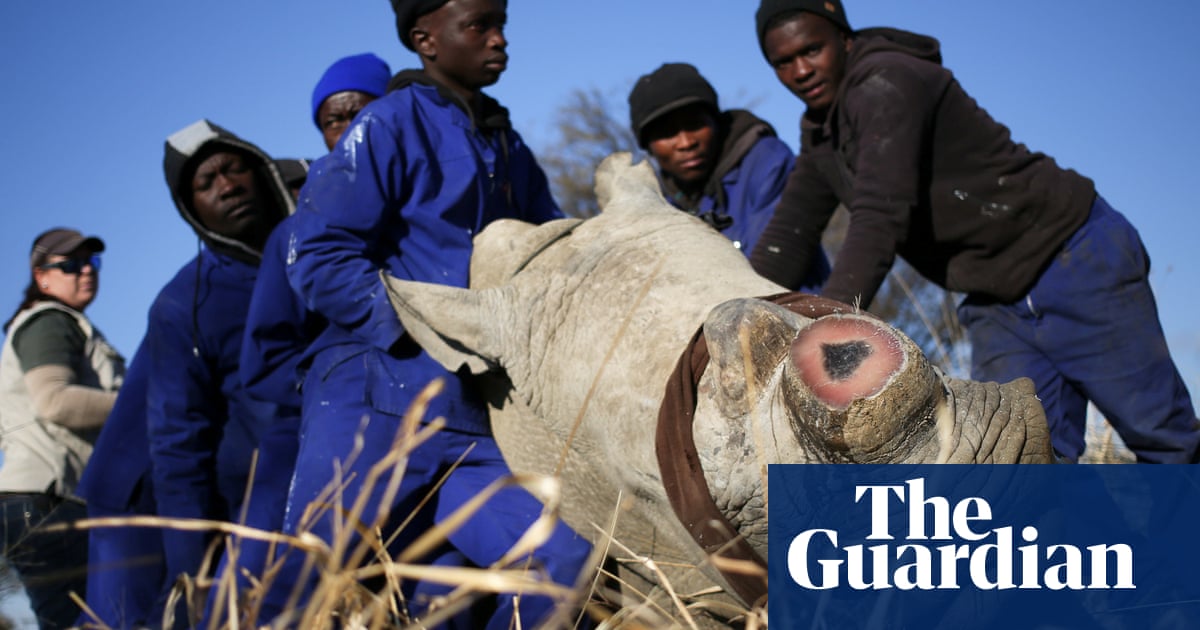
Dehorning rhinos reduces poaching by 80%, study finds
Cutting off the animals’ horns more effective than traditional protection methods such as rangers and costs less, say experts Cutting the horns off rhinos causes a large reduction in poaching, according to a new study, which raises questions about the effectiveness of expensive anti-poaching techniques used to protect the African mammals. Poaching for horn is…

What the First Results from the Global Flourishing Study Tell Us about Age, Employment and Partnership
Global Flourishing Study Reflects Youth Struggles and Ripple Effects of Childhood Challenges Young people are struggling; retirees are happier than employees; people in partnerships are flourishing more than those who are single. Hear the first takeaways from the Global Flourishing Study. By Rachel Feltman, Fonda Mwangi & Alex Sugiura Rachel Feltman: For Scientific American’s Science…

Poorest 750 nations face ‘tidal wave’ of debt repayments to China in 2025, study warns
Vulnerable countries to pay record $22bn this year, mostly relating to loans issued under Xi Jinping’s belt and road initiative The most vulnerable nations on Earth are facing a “tidal wave” of debt repayments as a Chinese lending boom starts to be called in, a new report has warned. The analysis, published on Tuesday by…

Canada medical mystery takes twist as study finds no evidence of brain illness
Researchers link suspected cases in New Brunswick to known diseases, suggesting ‘misdiagnosis and misinformation’ A new peer-reviewed scientific study has found no evidence of a mystery brain disease in the Canadian province of New Brunswick, suggesting instead a troubling combination of “misdiagnosis and misinformation”. The research comes as the Maritime province prepares its own assessment…

Scientists Use Ancient Chinese Poetry to Study Endangered Yangtze Porpoise
Ancient Poems Reveal the History of the Endangered Yangtze Porpoise Mentions of the critically endangered Yangtze finless porpoise in ancient Chinese poetry have revealed missing information about the habitat of the world’s only freshwater porpoise By Gennaro Tomma edited by Andrea Thompson Yangtze finless porpoise. Join Our Community of Science Lovers! Around 1745, Chinese emperor…

Solar Geoengineering Is Possible with Existing Aircraft, Study Finds
Solar Geoengineering Is Possible with Existing Aircraft, Study Finds Scientists previously thought that solar geoengineering—or releasing particles into the atmosphere to reflect solar rays—would require specialized high-altitude vehicles By Chelsea Harvey & E&E News CLIMATEWIRE | A futuristic geoengineering proposal might be easier to accomplish in the real world than scientists previously thought. The new…

News spotlight: Study buoys hope for rare axolotls
Axolotls — the cute and charismatic creatures made famous by the video game “Minecraft” — are in a free fall. Pollution, modern farming and the introduction of invasive fish that prey on the critically endangered species have reduced their habitat to the channels of a single lake in Mexico. But a new study is offering…

Powerful earthquake could raise Pacific north-west sea levels ‘dramatically’ – study
Likelihood of potentially devastating quake above 8.0 magnitude in next 50 years is 15%, study states A massive earthquake in the Pacific north-west could rapidly transform areas of the coast from northern California to Washington, causing swaths of land to quickly sink, “dramatically” raising sea level and increasing the flood risk to communities. That’s according…

In a reversal, the Trump administration restores funding for women’s health study
Rob Stein The Trump administration is restoring financial support for a landmark study of women’s health, an official said Thursday, reversing a defunding decision that shocked medical researchers. “These studies represent critical contributions to our better understanding of women’s health,” said a statement from Andrew Nixon, a spokesman for the Department of Health and Human…
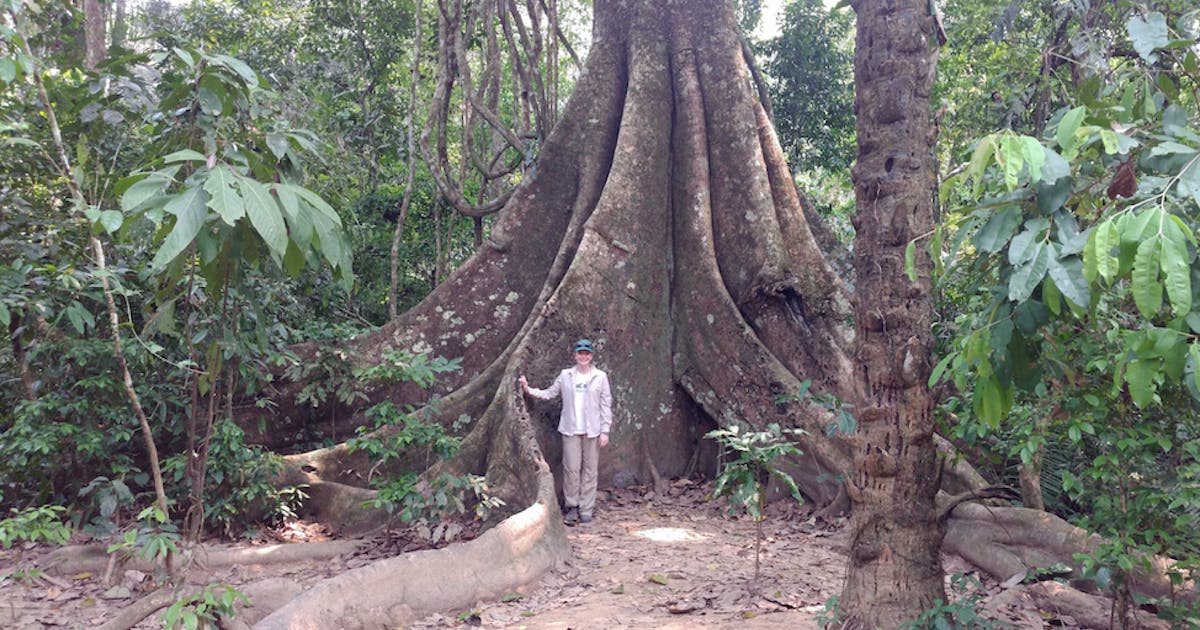
Meet a scientist: To study conservation, she studies people
Editor’s note: A 2017 survey found that 81 percent of Americans could not name a living scientist. No, not a single one. At Conservation International, we have lots of scientists you should know. Here’s one Studying nature is the work of environmental scientists. But studying the conservation of nature — how it works, and how…

Study: Protect these places — or face climate doom
To stop climate catastrophe, there are certain places on Earth that we simply cannot afford to destroy, according to new research by Conservation International scientists. Compiling carbon data from forests, grasslands and wetlands, the scientists determined how much carbon is stored in ecosystems across the globe and measured how long it would take to get…

Study: Protecting tropics could save half of species on brink
In 2019, a landmark UN report revealed that nearly 1 million species face extinction due to human activities and climate change. A groundbreaking new study offers a solution to save more than half of these doomed species, while slowing climate breakdown: Conserve just 30 percent of tropical lands. The study, published today in the journal…

To stop climate catastrophe, look to soil: study
In 2019, a UN report laid out a bitter truth: The current food system is fueling the destruction of Earth’s forests — and humanity must overhaul how we grow and ship food to stop climate breakdown. But countries are struggling to keep farming sustainable while meeting the mounting demand for production — which must increase…

Shifting tuna populations could trigger ‘climate justice issue’: study
Despite their small size, Pacific Island nations and territories are a powerhouse in the fishing industry, contributing more than a third of the global tuna catch. However, the tide could soon turn for these islands — and not for the better. Fueled by greenhouse gas emissions, ocean warming will alter the habitats of tuna, causing…

Study: Nature has saved us from worst climate impacts — for now
Nature itself has already saved humanity from a climate cataclysm, new research finds. Published today, the study found that without Earth’s complex web of terrestrial and marine ecosystems — known as the biosphere — we would already be seeing far more severe climate impacts than we are now. Using a state-of-the-art computer model of Earth,…
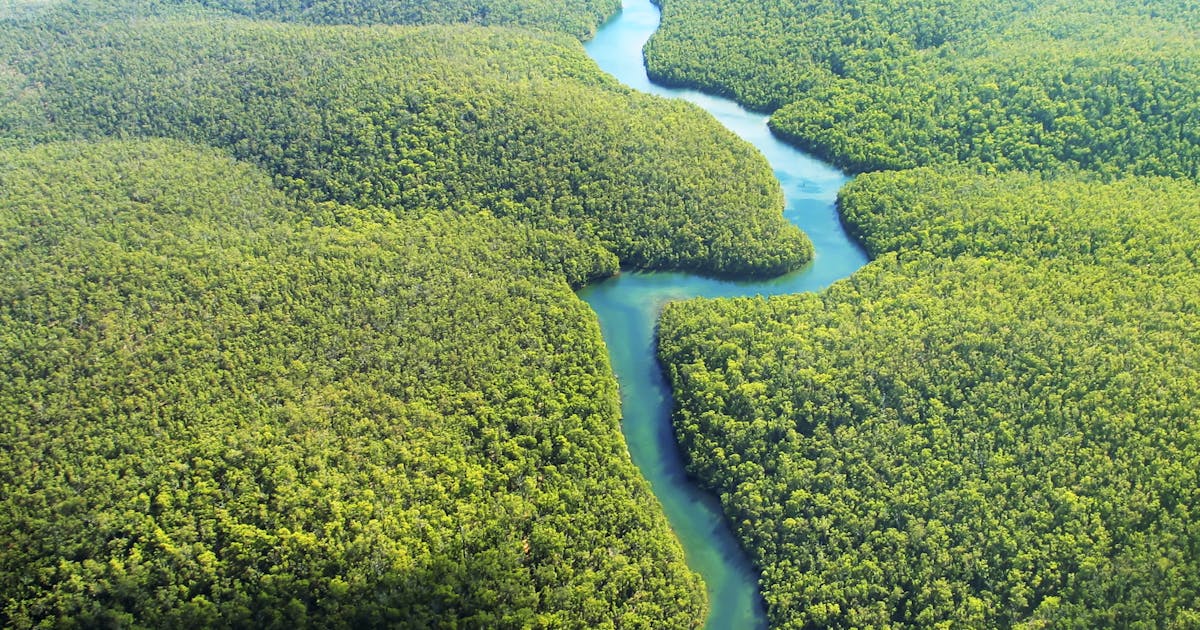
These ecosystems could determine our climate future: study
Nature’s stashes of climate-warming carbon are packed into a small percentage of Earth’s lands, finds a new study that pinpoints the ecosystems humanity must protect to avert a climate disaster. The study, published today in the journal Nature Sustainability, found that half of Earth’s “irrecoverable carbon” — defined as carbon that, if emitted into the…

Study: Protected forests are a climate powerhouse
Protected forests keep significantly more climate-warming carbon out of the atmosphere than unprotected forests, according to a new study. The research, published in the journal Nature Communications, illustrates just how important protected areas are in the fight to curb climate change. Like a lot of research about earthly ecosystems, this analysis started in outer space. The…

Scientist’s Study Led FDA to Ban Food Dye Red No. 3. But He Says the Additive Is Safe
Scientist’s Study Led FDA to Ban Red No. 3 Food Dye. Yet He Says It Is Safe Almost 40 years ago, Joseph Borzelleca published a study on the food coloring Red No. 3. The FDA cited his work when banning the additive in January. But the researcher says the dye is safe By Phil Galewitz…

Nearly half of women in Africa will be obese or overweight by 2030 – study
Stigma, lack of treatment and disproportionate rise of the disease in women draws comparisons with HIV epidemic An alarming rise in obesity in Africa has been compared with the HIV epidemic, with stigma and lack of treatment having a disproportionate impact on women. Almost half of women in Africa will be obese or overweight by…

Christianity declines among U.S. adults while “religiously unaffiliated” grows, study says
Jason DeRose The portion of the U.S. population identifying as Christian has declined significantly over the last two decades, but a massive new Pew Research study finds that trend may be leveling off. The study, which surveyed 37,000 Americans, found that 62% identify as Christian. By comparison, when Pew did a similar study in 2007,…

Transgender Youth Have Better Emotional Health after Taking Hormones, New Study Finds
Transgender Youth Have Better Emotional Health after Taking Hormones, New Study Finds Hormone therapy improves transgender young people’s well-being and social relationships, but Trump’s recent executive order and state bans threaten to take it away By Tyler Santora edited by Tanya Lewis A demonstrator at the Rise Up for Trans Youth rally against President Donald Trump’s executive…

Key to protecting the ocean? Money and manpower, study finds
Editor’s note: You can draw lines on a map to “protect” an area of ocean, but does that mean that local communities and wildlife will be better off? According to new research, the answer is “not necessarily.” A new paper published in the journal Nature offers data to back up something conservationists have argued for…

In fishing industry, women face hidden hardships: study
The fishing industry is facing a reckoning. Journalists and researchers in recent years have uncovered slavery, child labor and human trafficking on fishing vessels, spurring a global push to address human rights abuses on the high seas. However, what happens after the fish are caught has remained largely hidden. According to researchers, millions of onshore…

News spotlight: Fossil fuels behind extreme ocean temperatures, study says
For 450 straight days in 2023 and 2024, ocean temperatures hit record highs. According to a new study, the world’s oceans are warming four times faster than they were in the late 1980s, and the burning of fossil fuels is behind the dramatic acceleration, Danielle Bochove reported for Bloomberg. “With climate change, it’s the oceans…

‘Perfect rat storm’: urban rodent numbers soar as the climate heats, study finds
Sharp rise in population in 11 of 16 cities expected to continue as rising temperatures make it easier for the animals to breed, say researchers Rat numbers are soaring in cities as global temperatures warm, research shows. Washington DC, San Francisco, Toronto, New York City and Amsterdam had the greatest increase in these rodents, according…

2025 Missions to the Sun Seek to Study Space Weather and Shape of the Heliosphere
Why 2025 is an Exciting Year in Heliophysics From space weather to science missions, there’s a lot to be excited about in heliophysics this year. By Rachel Feltman, Meghan Bartels, Fonda Mwangi & Jeffery DelViscio Rachel Feltman: For Scientific American’s Science Quickly, I’m Rachel Feltman. Life as we know it couldn’t exist without the sun,…

Peeing is contagious in chimpanzees, study suggests
By Jonathan Lambert While watching a group of captive chimpanzees for her graduate research, Ena Onishi noticed something odd about the primates. “They seemed to have a tendency to urinate around the same time,” said Onishi, a wildlife researcher at Kyoto University. “It reminded me of some human behaviors of going to the bathroom together,…
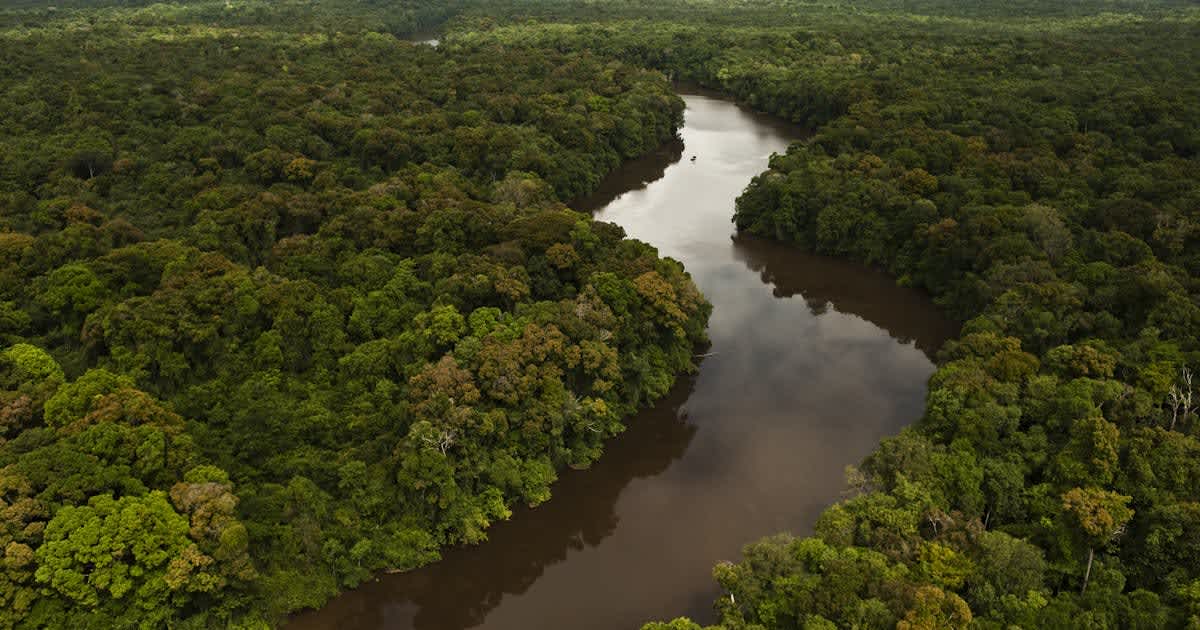
News spotlight: A quarter of freshwater species face extinction, study finds
A new study is ringing alarm bells for freshwater species, finding nearly a quarter are at risk of extinction. The study, from researchers at the International Union for the Conservation of Nature (IUCN), named dams, farms, invasive species and pollution as responsible for the decline, Julia Jacobo reported for ABC News. The findings are “alarming,”…

‘Hotel of mum and dad’ in UK at its fullest in two decades, study finds
Almost a fifth of adults aged 24-34 are living with parents, particularly in areas of high-cost housing The “hotel of mum and dad” is the busiest it has been for two decades as an increasing number of young adults in the UK choose – or are forced by low wages and rising rents – to…

Gaza death toll 40% higher than official number, Lancet study finds
Analysis estimates death toll by end of June was 64,260, with 59% being women, children and people over 65 Research published in the Lancet medical journal estimates that the death toll in Gaza during the first nine months of the Israel-Hamas war was about 40% higher than numbers recorded by the Palestinian territory’s health ministry.…

Survival of the luckiest? New study hints at the potential role of luck in evolution
By Jonathan Lambert For many, evolution boils down to a simple phrase: survival of the fittest. Within a population, individuals vary in their ability to survive and reproduce, and the winners of this competition shape the next generation. “Everywhere we look, outcomes across populations are unequal,” says Matthew Zipple, an evolutionary biologist at Cornell University.…

Glass of milk a day cuts bowel cancer risk, study finds
A large UK study has found further evidence that people with more calcium in their diet – equivalent to a glass of milk a day – can help reduce their risk of bowel cancer. The researchers analysed the diets of more than half a million women over 16 years and found dark leafy greens, bread…

More breast cancer cases found when AI used in screenings, study finds
First real-world test finds approach has higher detection rate without having a higher rate of false positives The use of artificial intelligence in breast cancer screening increases the chance of the disease being detected, researchers have found, in what they say is the first real-world test of the approach. Numerous studies have suggested AI could…

‘Forever Chemicals’ Reach Tap Water via Treated Sewage, Study Finds
Wastewater, even after treatment to make it drinkable, contains high levels of PFAS, according to researchers. By Hiroko Tabuchi As the world grapples with climate change, population growth and dwindling supplies of fresh water, more people are set to rely on treated wastewater to sustain their daily lives. But wastewater, even after treatment, contains high…

Permanent contraception surged after Roe v Wade overturned, study finds
Young adults living in states likely to ban abortion obtained tubal sterilizations and vasectomies in months after ruling In the months after the US supreme court overturned Roe v Wade, permanent contraception in the form of tubal sterilizations and vasectomies surged among young adults living in states likely to ban abortion, new research released on…

Bus services cut disproportionately in deprived areas of England, study finds
Most deprived areas suffer ten-fold bigger reduction, which in turn exacerbates deprivation People living in deprived areas of England have suffered disproportionately larger cuts to bus services, according research by a leading thinktank. The analysis by IPPR North found that cuts to services in England had been felt the most in “left-behind neighbourhoods”. People living…

‘A very, very small number’ of teens receive gender-affirming care, study finds
Selena Simmons-Duffin How many transgender teens in the U.S. are receiving medical care related to gender transitions? According to a peer-reviewed research letter published Monday in JAMA Pediatrics, the answer is very, very few. It’s a key data point as Republican lawmakers in Congress and around the country continue to focus on transgender youth in…

Study: Cash handouts have a dramatic impact on the deadliest infectious disease
By Gabrielle Emanuel What if the best medicine isn’t a pill or vaccine — but it’s cold cash? There’s a growing body of research that suggests economic programs that give money to very poor people can have major health benefits. Now, a new study — out on Friday in Nature Medicine — proves this approach…

Grenfell firefighters exposed to toxic smoke developed health disorders, study finds
Exclusive: Data from 524 firefighters who risked their lives showed 136 reported life-changing conditions More than a quarter of firefighters exposed to toxic smoke during the Grenfell Tower fire have had long-term health disorders, a study shows. Prof Anna Stec, a world-leading expert in toxicity who co-authored the report, found that most of the firefighters…

Scandinavians came to Britain long before Vikings and Anglo-Saxons, finds study
Genetic analysis of Roman soldier or gladiator buried in York reveals 25% of his ancestry came from Scandinavia People with Scandinavian ancestry were in Britain long before the Anglo-Saxons or the Vikings turned up, researchers have found after studying the genetics of an ancient Roman buried in York. The arrival of the Anglo-Saxons brought an…
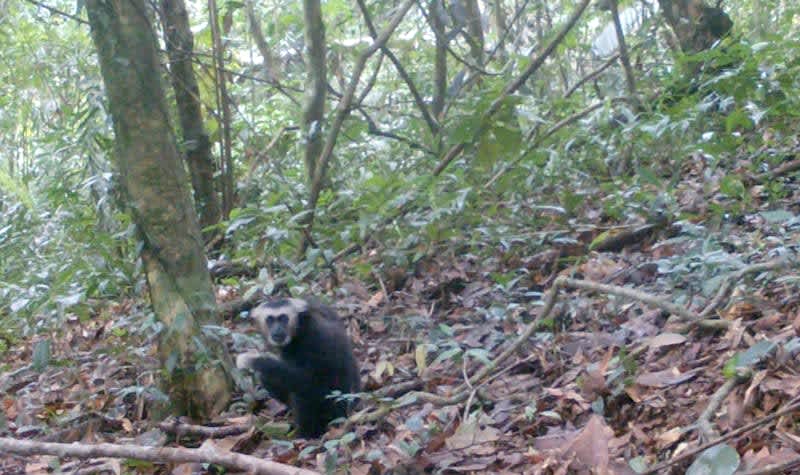
Caught on camera: New study reveals a refuge for rare wildlife
“Before, we were working blind”: A new Conservation International study gives scientists an unprecedented view into a remote tropical forest. The Central Cardamom Mountains are some of Southeast Asia’s most pristine expanses of wilderness — long considered a refuge for rare species. Now, a new study from Conservation International and the Cambodian government provides an…
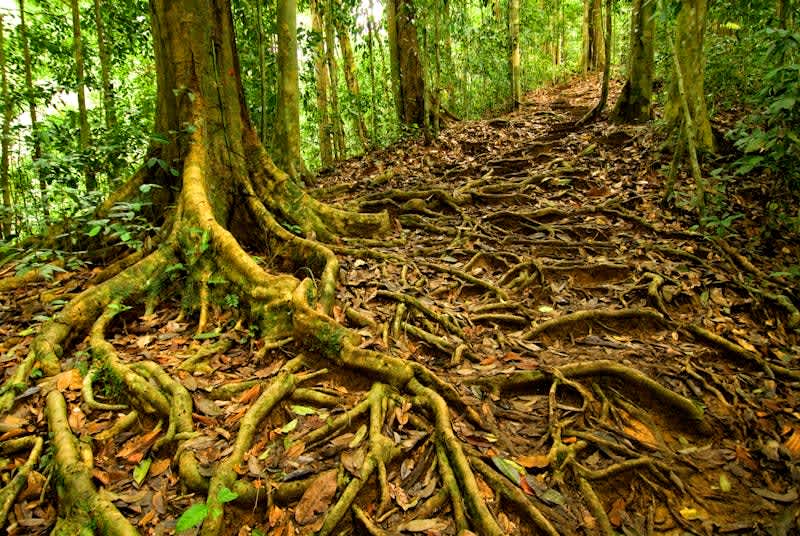
How cool are forests? A hot new study has answers
A new study from a Conservation International scientist measures the cooling effects of forests against extreme heat — with eye-opening results. The shade of a tree can offer instant relief from the heat. But how much can forests buffer scorching temperatures during an extreme heat wave? A lot, according to a new study. During the…

New study reveals seaweed’s hidden climate benefits
Humble seaweed is having a moment. It’s been heralded as a sustainable superfood, a biodegradable replacement for plastic packaging and a feed supplement to cut cows’ methane emissions. Now, new research shows that seaweed forests — such as massive underwater towers of kelp — may play a bigger role in fighting climate change than previously…

Upon reflection: Study gauges grasslands’ climate-fighting powers
Plant more trees, cool the climate: It’s a message that readers of this website know well. But new research confirms that this “rule” doesn’t apply everywhere. Take southern Africa: In some places, grasses are far more effective climate allies than trees. Why? Grasses better reflect the sun’s radiation than darker, woody vegetation. This effect, called…

